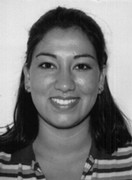
The politics of delusion
Tuesday night’s Hart lecture panel offered invaluable insight to the SMU community. The hour-long discourse entitled “The Politics of Hatred” proved thought provoking and illuminating in its analysis of our options and motivations for treatment of Iraq. The three panelists, Tom Friedman, Bernard Shaw and David Gergen, spoke compellingly, and I’m grateful that these intelligent, thoughtful and erudite gentlemen shared their time and thoughts with us. Tom Friedman offered an especially astute perspective on our future with Iraq. His conclusion, however, concerned me, to use polite language.
“We are the world … we’ve made mistakes, but nothing good happens without us,” Mr. Friedman declared.
We are the world? Nothing good? Excuse me?!
I would wager that the few thousand years of human development that took place before America was a twinkle in a white man’s eye would take issue with such statements. Ancient Egypt, anyone? The Mayan calendar? Hello, China? History aside, many modern countries would also likely raise an incredulous eyebrow to such reckless solipsism. Switzerland is doing plenty of good things with no help from us. How do they ever get by?
Perhaps Mr. Friedman was referring to the fact that our infamous golden arches loom over Indonesian jungles, peddling toxic foods (I use the term lightly) that only the tourists can afford. Or that we’ve built more Hard Rock Cafes than hospitals in developing countries that could probably use an ambulance service more than a collection of guitars signed by Eddie Money. Or that young people are mugged for their Levis in South Korea. We’ve indeed exported the biggest, shiniest and silliest elements of our culture to become bona fidé#233; money machines, sucking the capital out of one Kuwait after another.
We are eating the world.
But global economics isn’t really my area, so let’s give Mr. Friedman the benefit of the doubt. Surely such an educated, eloquent and compassionate man who had just espoused the necessity of our involvement in the international community wouldn’t stoop to such presumption. Perhaps all he meant was that in light of our considerable (and formidable?) influence in the global arena, we ought to carefully consider what our invasion of Iraq will accomplish. If nothing good happens without us, we’re going to have to make serious investments in that “country of 25 million half a world away” to ensure that our occupation of it does more good than harm, both for Middle Eastern peoples and for ourselves.
Friedman’s assertion raises grave concerns about the United States’ position regarding the other 5.75 billion people with whom we share the planet. While the phrase “we are the world” may be audacious and indicative of delusions of grandeur, it caricatures our influential and dominant position on the global stage. Our generation especially should think carefully about how we want to shoulder this responsibility, whether willingly assumed or indeed thrust upon us by our history. Do we want to grow to be wise and kind, or stay fat, complacent and carelessly rich? Will we carry on the reputation of being buyers and sellers, or evolve into thinkers and healers?
The country that we all rightfully take such pride in was founded on principles that do not include greed, imperialism or destructive caprice. If we’re going to be the world, if we’re going to send abroad elements that exude pure, unadulterated Americanism, let’s choose conscientiously what it is we’ll send. Let’s emanate (not coerce) democracy, freedom and tolerance. Building another Starbucks in Siberia is probably not the best advancement and integration of American ideals into a struggling world.
If we are indeed the world, the head of the house, the show master, then we take under our wealthy wing the millions of starving, the diseased, the poor and the oppressed. We take responsibility for doing all we can to alleviate suffering and encourage advancement for the sake of everyone we “are.” With power and freedom comes accountability. If we are the world then we are violent religious fundamentalists, we are angry, disempowered youth, we are enslaved women, we are disgruntled radicals, we are illiterate children.
The question we must ask is, are we happy with who we are? And if not, what are we going to do about it?








